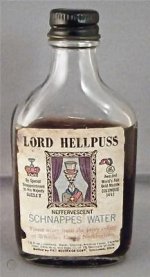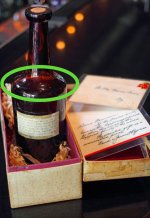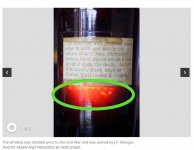It's probably more interesting for me in knowing what did these drinks tasted like because it'd be a connection to the people who drank them. Similarly one thing I like to do when visiting other countries is go to their supermarkets, makes me feel closer to the people than museums and attractions.
Wish the article would have mentioned if the testing revealed if it was drinkable. My understanding is that once the whiskey is bottled, it stops aging. Then there is the question on how airtight that cork was.
I don't see why it wouldn't be. It certainly wouldn't harm anyone, maybe it'll taste flat if it's lost volatiles and some of the alcohol.
I wouldn't expect it to rival nowadays' premium drinks. Cork is not airtight, this bottle is old so it may have lost something over the centuries. Spirits aren't considered to develop in a bottle, that's why a 15-year old whisky will still be called a 15-year old whisky if stored 5-10-15+++ years before popping, unlike wine.
Ancient Greek, Roman, and Byzantine records show a flourishing wine trade between certain Greek islands and Cyprus and even exporting wines as far as England, and having specific high-value vintages, terroirs and fields just like nowadays, so the ancients did drink for taste rather than getting wasted. Fun fact is that the Greeks always watered their wine, while the Romans did not which the Greeks considered extremely barbaric!
















